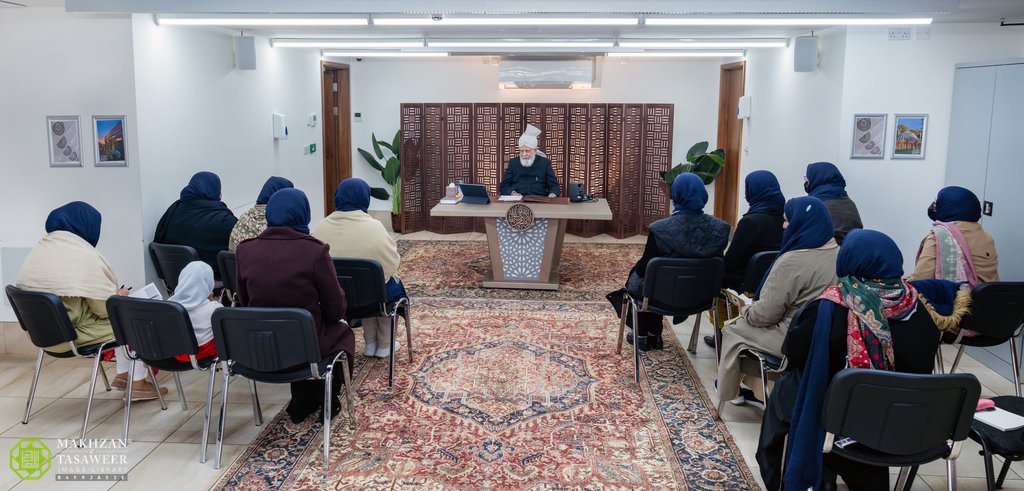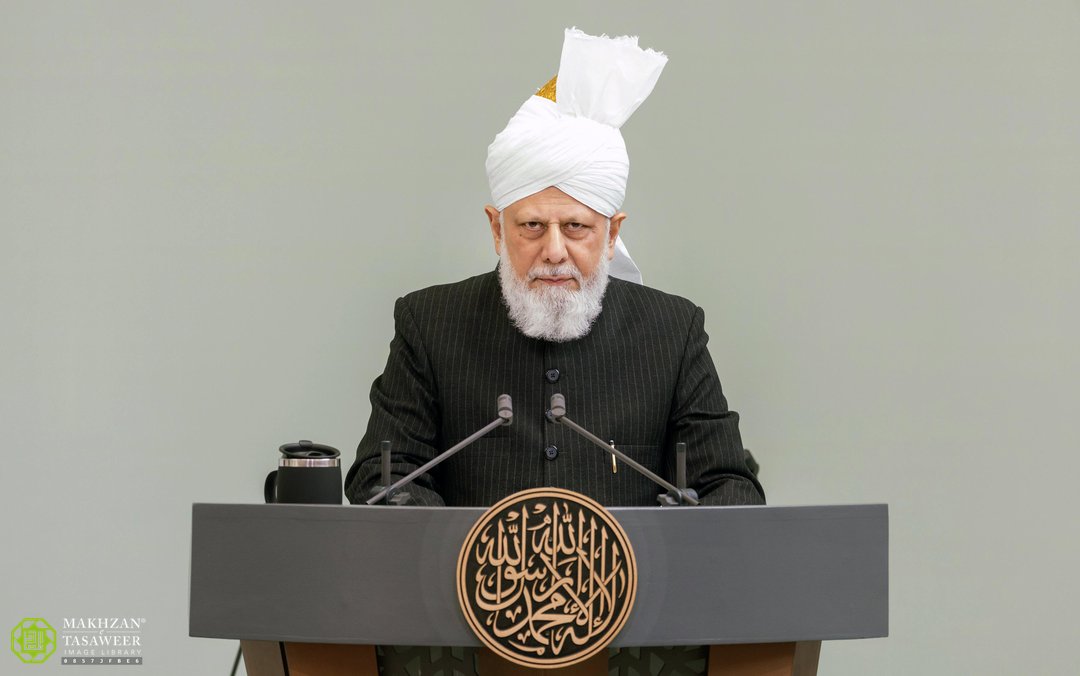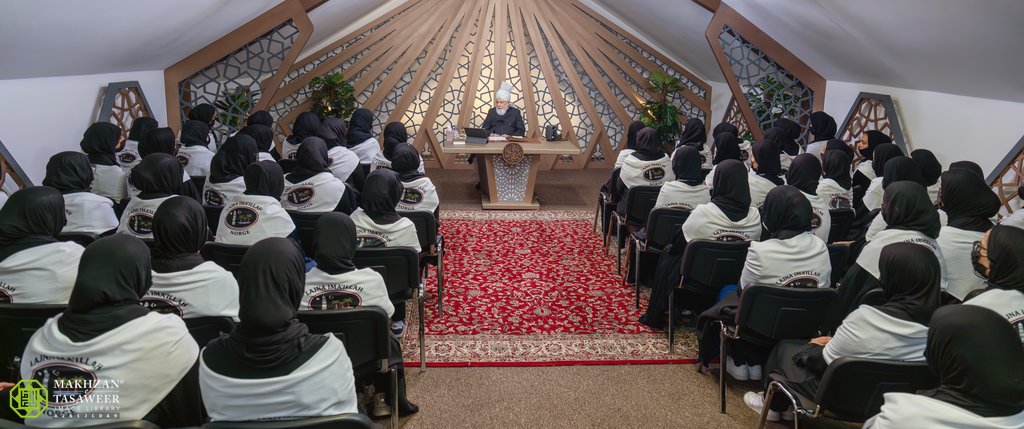
Hazrat Mirza Masroor Ahmad Provides Guidance to Local Presidents of Lajna Imaillah Germany from NRW Mitte Region
“Remember that the Holy Prophet (peace and blessings of Allah be upon him) said that women should remind men regarding religious matters, and men should also remind women. Whoever reminds the other will receive reward for it – even for reminding about worship.” – Hazrat Mirza Masroor Ahmad
On 4 October 2025, the World Head of the Ahmadiyya Muslim Community, the Fifth Khalifa (Caliph), His Holiness, Hazrat Mirza Masroor Ahmad, met with local presidents (Sadraat) of Lajna Imaillah Germany from the North Rhine-Westphalia’s Mitte region at the Mubarak Mosque complex in Islamabad, UK.
Lajna Imaillah is the women’s auxiliary organisation of the Community, and its office-bearers play a vital role in guiding members in matters of faith and moral training.
During the meeting, each local president had the opportunity to introduce themselves and seek guidance directly from His Holiness on various matters relating to their responsibilities and the spiritual and moral upbringing of the members under their care.
One attendee sought His Holiness’ advice regarding the correct use of Artificial Intelligence and how to safeguard members from its potential harms and misuse.
In response, Hazrat Mirza Masroor Ahmad said:
“You should raise awareness among your Lajna members (about A.I.). Inform them about both its harms and its benefits. Every member, including those girls aged 11-15, should be taught what the advantages are, what the disadvantages are, and to what extent we must safeguard ourselves from its misuse. Today, those who work in the technical field themselves are warning about its dangers. You should collect their statements and share them with your members… They say that one should be cautious and that it has many harmful effects.”
Hazrat Mirza Masroor Ahmad further stated:
“Of course, A.I. can also be used for good purposes… So seek help from those who are well versed in A.I. and hold classes explaining what the harms and benefits of A.I. are.”
During the meeting, a Lajna member asked His Holiness about the role of women in reminding their husbands and family members about the importance of adhering to their faith.
His Holiness emphasised that women too share the responsibility of educating others about matters of faith.
Hazrat Mirza Masroor Ahmad stated:
“The Holy Prophet (peace and blessings of Allah be upon him) said, ‘Learn your faith from Aisha.’ Thus, Hazrat Aisha (may Allah be pleased with her) and also other women used to teach matters of faith. The Holy Prophet (peace and blessings of Allah be upon him) said that men should remind their women regarding religious matters and likewise, women should remind their men. Whoever reminds the other will receive reward for it – even for reminding about worship.”
His Holiness further explained that Islam places a shared responsibility upon both husband and wife. His Holiness referred to a narration in which it was advised that spouses should wake each other for the Fajr prayer and encourage one another in worship. This illustrates that both men and women in Islam are equally encouraged to nurture piety and support each other in righteousness.
One attendee asked His Holiness how parents can guide their children who have become addicted to mobile phones and spend long hours using them at home.
In response, His Holiness outlined that Islam teaches good ettiquettes to adopt when sitting in a gathering and that being on one’s phone, cut off from the rest of the gathering, goes against those manners.
Hazrat Mirza Masroor Ahmad offered the following guidance:
“Teach the proper etiquette of gatherings. Islam teaches that when you are seated in a gathering, you should not even whisper to one another, for it goes against the decorum of the assembly and causes others to feel doubtful, wondering what is being discussed. Whatever needs to be said should be spoken openly so that everyone can hear.”
Hazrat Mirza Masroor Ahmad continued:
“When you are sitting together at home, advise them to leave their phones in another room and switch them off. Then engage in conversations that are of interest to them. Nowadays, children are interested in topics such as current affairs, world issues, or their studies – talk to them about those things. […] When you speak about subjects that interest your children, they will naturally want to sit and engage in family discussions. But if you only talk about things that interest you, they will prefer to stay on their phones. So first, recognise your own shortcomings and bring about reformation within yourselves.”

